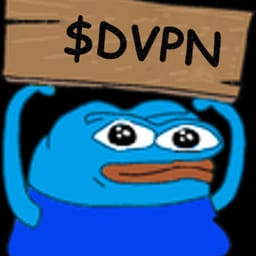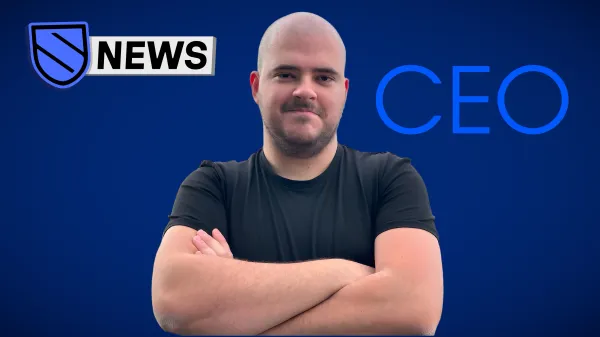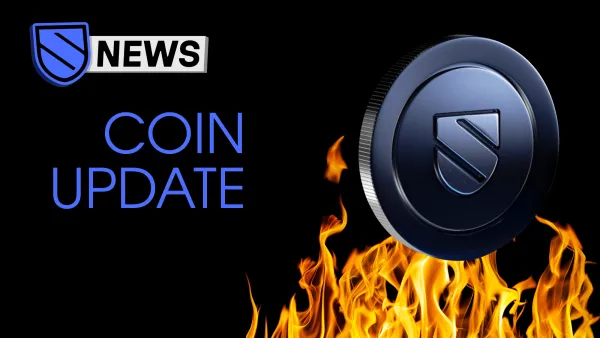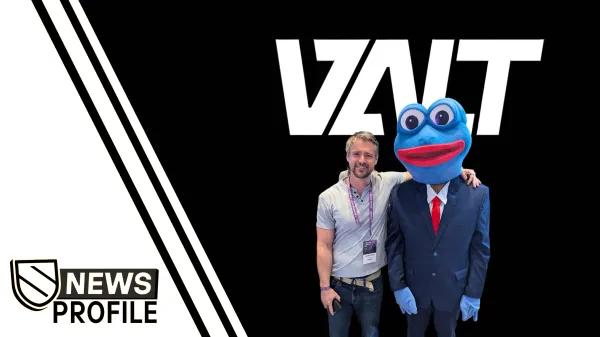Sentinel and the Cosmos Ecosystem: A History
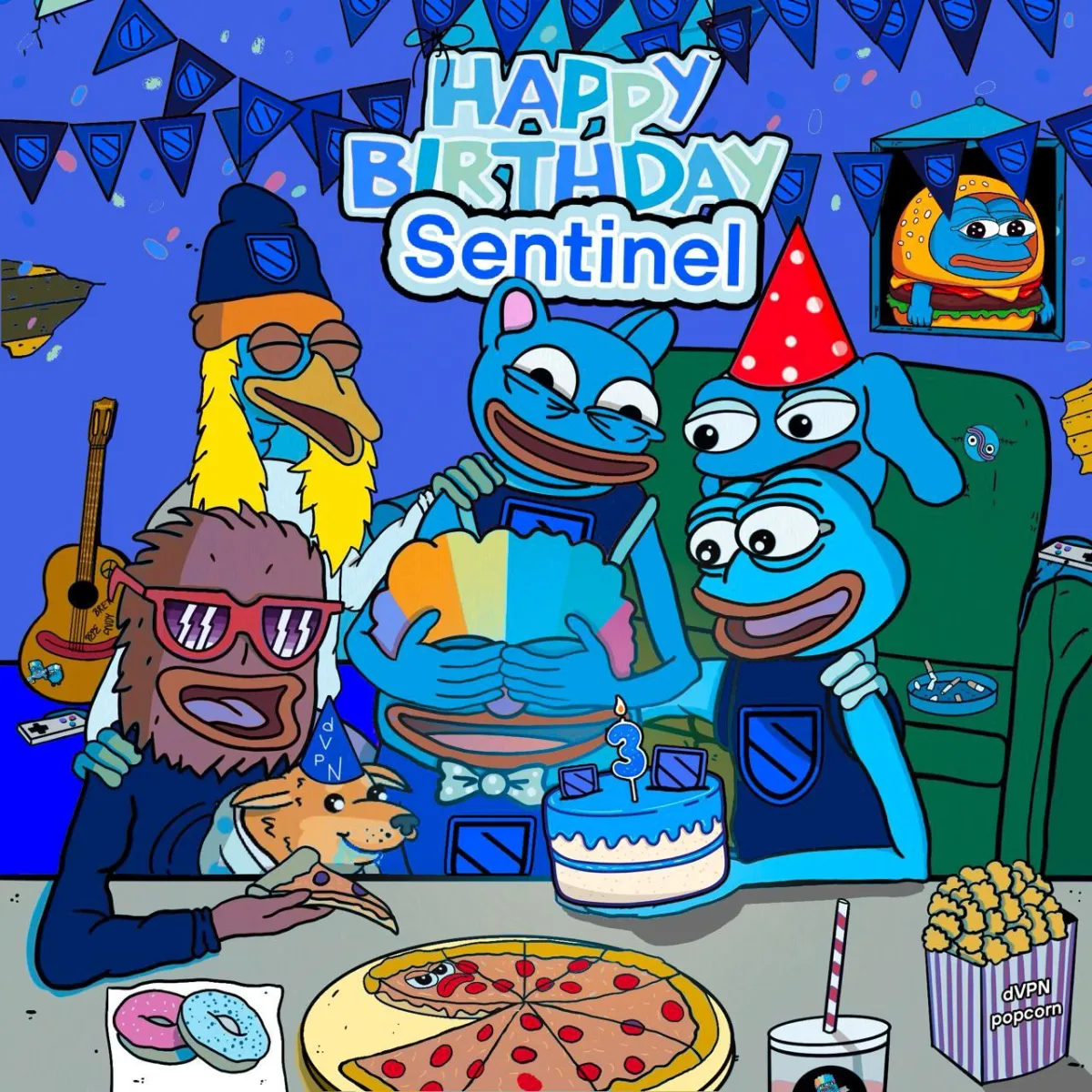
Sentinel entered its third year as part of the Cosmos Ecosystem today!
By the standards of blockchain projects, Sentinel is actually quite old now—a veteran of three bear markets over the course of almost seven years. Many projects have also been added and subtracted from the rather young Cosmos Ecosystem since Sentinel first arrived here three years ago, which contributes further to that battle-weathered reputation.
It's difficult to retroactively parse and comprehend the origins of Sentinel as a project (which was formally established in May of 2017), as the mostly-pseudonymous, unostentatious team prefers to let their work speak for itself, rather than participate in historical reflection or self-mythologizing. But to understand Sentinel's history within Cosmos Ecosystem since 2021 is to understand a great deal about the nature of decentralized VPN technology itself.
In order to understand why Sentinel chose the Cosmos Ecosystem, we must first take a trip back to the Ethereum era—a very different time.
Road to the Cosmos
Sentinel was able to create a working dVPN architecture on Ethereum during the late 2010s that culminated in a early Sentinel dVPN client surpassing 100,000 total downloads across all platforms. A superficial assessment of the project at that point in time might lead an observer to question why such a young project with a well-received, revolutionary new product would ever make dramatic changes—yet the wheels had already been set in motion for a transition to a new blockchain very early on in Sentinel's development.
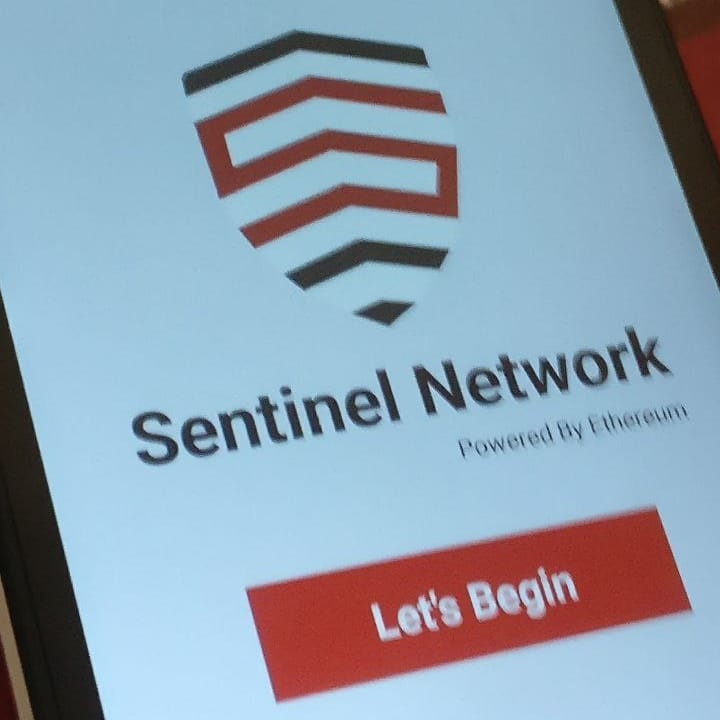
What we now know as the Sentinel Coin or DVPN Coin was the ERC20 Sentinel token ($SENT) in the years before the Cosmos transition. It was first distributed to early supporters and investors of the project in an ICO (Initial Coin Offering) in 2018. The first US Dollar market price for SENT recorded on CoinMarketCap was $0.00743, on April 17th of that year.
Ethereum's Shortcomings
Speed is still an issue with Ethereum in the present day, but before "The Merge" in 2022 it was an even greater issue. As it was a Proof of Work (PoW) network during that period, Ethereum inherently did not provide the number of transactions-per-second required for dVPN to work efficiently on the chain. The computational demands of validating transactions on a Proof of Work blockchain increase with network usage, which naturally led to a great deal of congestion on an extremely popular chain like Ethereum. This issue is known as "scalability," an oft-used term in the crypto space.
High transaction fees and slow block times weren't a sustainable solution for a product that places such a heavy workload on the chain. For an example we'll turn to the present day: Sentinel is currently in the top ten among Cosmos Ecosystem blockchains for daily transactions, despite having a substantially lower market cap than many also-listed projects.
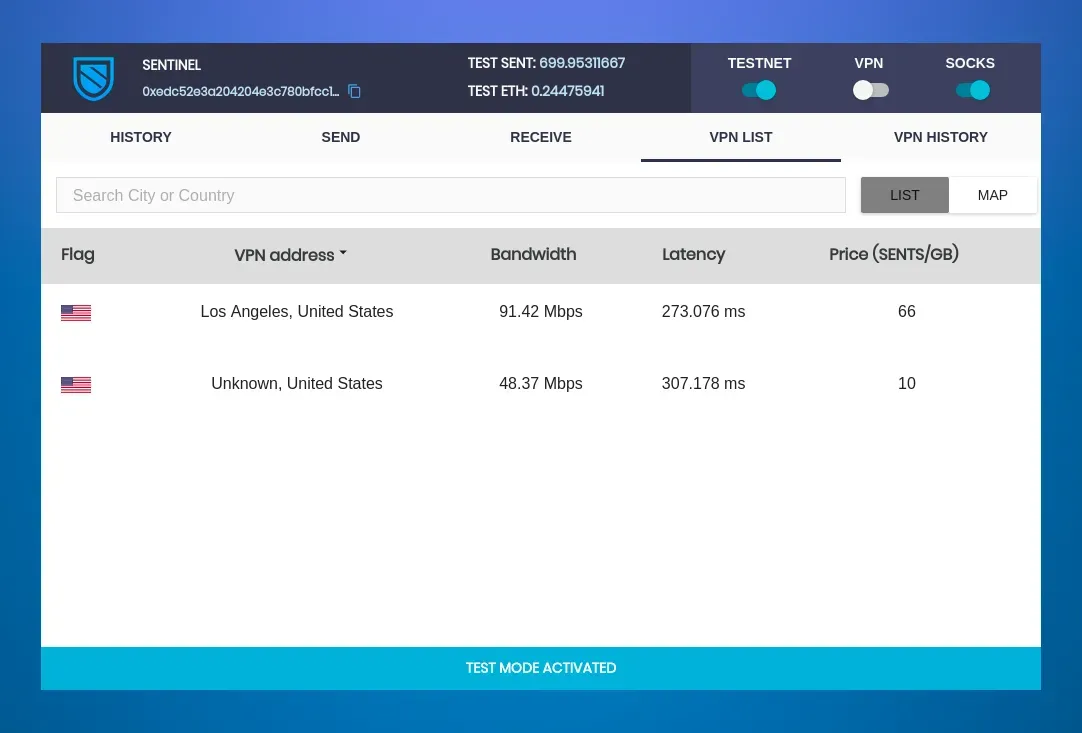
A monolithic and rather one-dimensional colossus of a blockchain like Ethereum, which was six years old in 2021 and shared with hundreds of other projects, also did not permit the creativity, flexibility, and customization needed for Sentinel to build a self-sustaining ecosystem for itself.
The team wanted Sentinel to be an open source foundation that any dVPN client developer could use to their own ends. Ultimately this would mean dozens of independent applications providing access to Sentinel nodes in the future, together in one economy. While Sentinel has never shirked on the quality of its architecture, a fundamental tenant of the project's strategy in regards to applications has been to harness the power of quantity and development accessibility to make dVPN the new standard for the wider VPN industry.
This ambitious and hyper-decentralized model (which could be compared to that of Linux) has played a key role in separating Sentinel from its early competitors in the dVPN space in the years since the transition to Cosmos. Sentinel needed a fast, powerful blockchain that could be specifically tailored for a decentralized VPN ecosystem.
- This new blockchain needed to be able to handle an exceptionally heavy workload due to the number of apps. It also needed to be durable and stable enough to provide uninterrupted service to app consumers, many of whom are not crypto-literate or even aware they're using a blockchain-based product.
- The new blockchain needed to be able to interoperate with other blockchains easily in order to expand Sentinel's reach within the Web3 world.
- To keep this dynamic Sentinel economy cohesive, fair, and healthy, there also needed to be a system for on-chain democratic governance.
This criteria destined Sentinel for a shift towards proof-of-stake and the "internet of blockchains," which the Sentinel team would later explicitly praise for its "scalability, governance, and inter-operability."
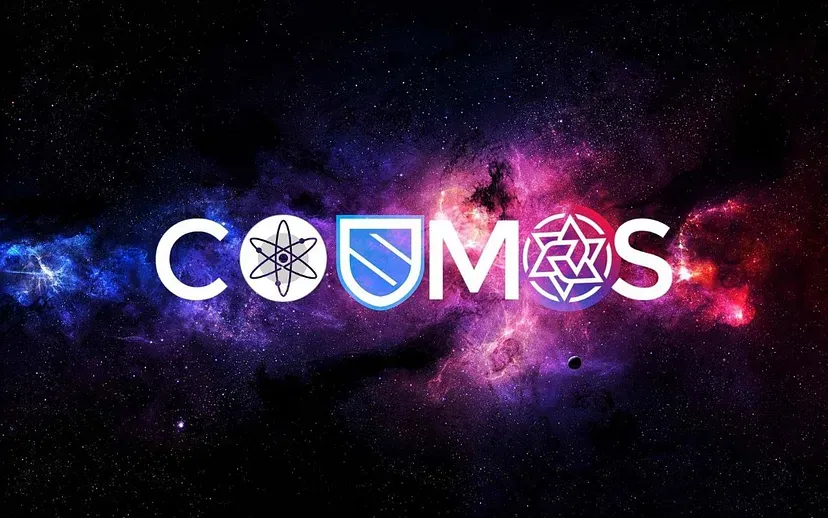
2021: A Chain Odyssey
All signs point to the Sentinel team deciding on Cosmos very early on in the project's history. A Sentinel testnet on Tendermint was unveiled as early as October 2018. Two more testnets on Tendermint would follow, which ended with Turing-3 in September of 2020.
"Since May 2017, the Sentinel team has been continuously researching, seeking a blockchain... As a result of this research, and with ongoing help from the Cosmos/Tendermint developer community, the Sentinel team is proud to announce the launch of the Sentinel Network dVPN on Tendermint using the Cosmos SDK." the team announced in an October 12th, 2018 post on their Medium website.
Before the transition, the Cosmos Ecosystem had already established itself as a home for utility projects, a fact that was enthusiastically acknowledged by the Sentinel team in their pre-transition communications. They praised the "horizontal scaling" capabilities of Cosmos blockchains (as opposed to the congested vertical model of Ethereum).
In mid-2020, Sentinel participated in the second "Game of Zones," a series of "adversarial testnet challenges" designed to prepare Cosmos developers for the then-new network. The set of challenges Sentinel participated in related to the introduction of IBC (Inter-Blockchain Communication), a protocol that has now become one of the Cosmos Ecosystem's primary attractions.
IBC has been crucial to the viability of Sentinel as an independent chain. The Sentinel team planned to open up dVPN nodes to payments in virtually any conceivable cryptocurrency; and indeed this has to come to pass, as applications built on Sentinel now accept everything from browser reward tokens to stablecoins to privacy coins.
Sentinel was declared the winner of Game of Zones Phase 2 on June 10th, which helped to establish a name for the project within the Cosmos Ecosystem before it had even fully joined it.
✨🏆 Congratulations @sentinel, winners of Phase 2 of Game of Zones! 🏆✨ pic.twitter.com/Zoknf3uJxr
— Game of Zones (@CosmosDevs) June 10, 2020
On March 27th, 2021, after years of buildup and hype, Sentinel's Cosmos mainnet blockchain saw its genesis—a day of immense excitement for everybody involved in the project. Decentralized VPN had taken its rightful place in the "internet of blockchains."
Investors with ERC20 Sentinel tokens swapped their balance for the new Sentinel DVPN Coin ($DVPN) using a swap tool on the Sentinel website. In early 2021, frustrations with transaction fees and speeds on Ethereum Network had reached a boiling point, both in the Sentinel community and the crypto world at large. The new, nimble Sentinel Coin was well-received for addressing these ailments, as well as drastically expanding the role and necessity of a native cryptocurrency for chain functions.
With the move away from a ERC20 token to a coin, investors swapped wallets such as Trust Wallet and Metamask out for ones in the Cosmos Ecosystem such as Keplr and Cosmostation. The most popular DEX for trading the old Sentinel token, Uniswap, was replaced by Osmosis. Almost overnight, the project and its community evolved from a state that seems quite alien to us now into roughly the way we know it today. With that sudden change also came many new faces, who discovered Sentinel for the first time upon seeing it enter the Cosmosphere.
It also quite normal to use the terms interchangeably.
Sentinel's node network, the heart of the project, numbered around five hundred in March 2021. It took a bit longer for that component to make its way to Cosmos, as the transition from Ethereum IKEv2/OpenVPN nodes to Cosmos Tendermint Wireguard nodes would not be completed until a few months later. The V2Ray protocol was also introduced to the new nodes in subsequent years.
Sentinel Goes Sovereign
In effect, the role that Sentinel has taken as an independent layer one blockchain is similar to the role that Ethereum had as Sentinel's host between 2017 and 2021.
Instead of being an application hosted on a larger blockchain, Sentinel is now a blockchain hosting a myriad of third-party applications ranging from dVPN clients to browser extensions. Potential expansions to the applications using the Sentinel chain in the next couple of years could include secure chat clients, antivirus software, and even torrent trackers. Sentinel wants to be a global marketplace for internet bandwidth and home to a wide array of consumer-accessible dApps.
Operating an extensive, widely-used line of consumer products on a blockchain is almost unprecedented in the cryptocurrency space. Maintaining a sovereign, independent Cosmos Ecosystem chain instead of being one of many projects along for the ride on a "mother" chain such as Ethereum allows Sentinel to better handle this uniquely large workload (as was mentioned earlier in the article, the Sentinel blockchain sees an unbelievable number of daily transaction relative to its current market cap ranking).
Staking has been of massive importance to the project. It has incentivized long-term participation among the community and provided needed security. On top of staking locking up over half of the circulating coin supply and providing coinholders with passive income, the validator set created to facilitate it has also played a key role in development and the community. It gave third parties the voice and stature to make their own contributions to the dVPN architecture and advocate changes to other aspects of the chain like tokenomics and funding. A validator set has also provided the Sentinel team with means to incentivize these contributions with delegations rather than manual payouts.
For more on Sentinel's validator set, see the article below.
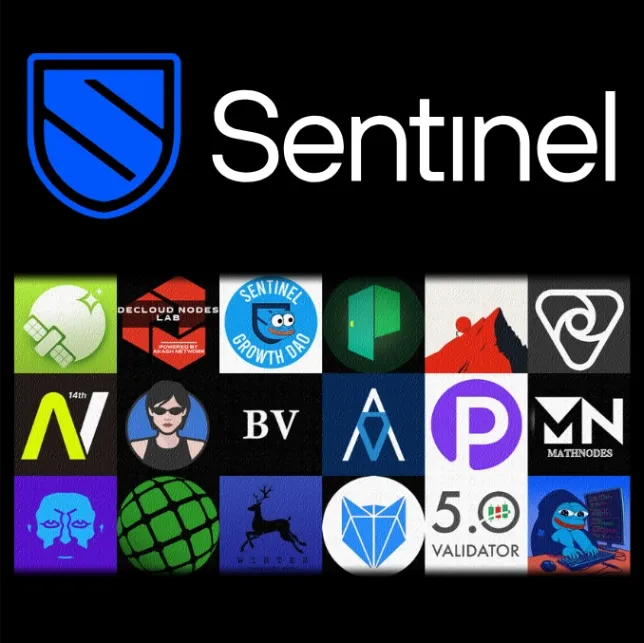
For a complex layer one blockchain with its own native ecosystem and economy, governance is absolutely crucial for ensuring both fairness and long-term viability as the decades go by. It also gives all coin holders a voice in the ecosystem—whether they're validators or not. Since March 2021 there have been over forty governance proposals posted to the chain for a vote, dealing with issues ranging from node pricing to chain upgrades to reducing inflation.
The benefits of being in the Cosmos Ecosystem are far more than technical or structural; there is also a human element that should not be ignored. Participation in a wider ecosystem has brought Sentinel countless quality people with quality ideas and contributions that have helped make the project what it is today. Ethereum left Sentinel isolated, Cosmos has given Sentinel a solid base of support and immersed it in a thriving culture of fun, collaboration, and Web3 idealism.
Ecosystem Partnerships
Osmosis
Sentinel has been traded on Osmosis DEX ever since the launch of mainnet, and is considered to be one of the exchange's "OG" listings. To this day it remains the project's recommended exchange for trading. Sentinel also runs a popular validator on Osmosis, which is ranked 22nd in voting power at the time of this article's writing.
Decentr
Decentr Browser, the ecosystem's answer to Brave, has featured integrated dVPN powered by Sentinel since the summer of 2022. Decentr was the first application since Sentinel's mainnet launch to provide dVPN service to users of Windows. Sentinel now has several functioning dedicated Windows dVPN clients, but for a stretch of many months in 2022 the Decentr team was the sole standard-bearer for Sentinel on the world's most popular operating system.
Akash
There have also been ongoing efforts for years to build connections between Sentinel and Akash Network, a fellow DePIN project that does with cloud computing and GPUs what Sentinel wants to do with bandwidth. The Sentinel team and community has long admired Akash—in fact, the original tokenomics of the Sentinel Coin were modelled on Akash's native coin. Through the hard work of community contributors, incentivized by both the Sentinel and Akash teams, it became possible to host Sentinel Nodes via Akash in 2023.
Hosting on Akash provides Sentinel node operators with enhanced security and has finally provided a tangible bridge between two projects that have long admired each other from afar, but there is still much work and fine-tuning to be done before Sentinel Nodes on Akash become truly viable. Due to some as-of-yet unresolved technical obstacles, hosting a Sentinel Node on Akash is currently more expensive than a VPS, instead of cheaper—admittedly, somewhat defeating the purpose. However, there is no reason to doubt that these issues will be ironed out in the future, and that Sentinel Nodes will have a viable way to fully abandon Web 2.0 architecture.
Sentinel's Future in the Cosmos
The Sentinel team had boots in the ground for the ATOMDenver2 conferences in Colorado, USA; and plans are being made to participate in this year's Cosmosverse in Dubai.
Sentinel also hopes to give back to the Cosmos Ecosystem in the form of ATOM dVPN, an upcoming Sentinel-powered dVPN client which will allow users to pay for service with Cosmos Hub Atoms. After that release, the team is planning to create a similar application for Osmosis and potentially many other Cosmos chains.
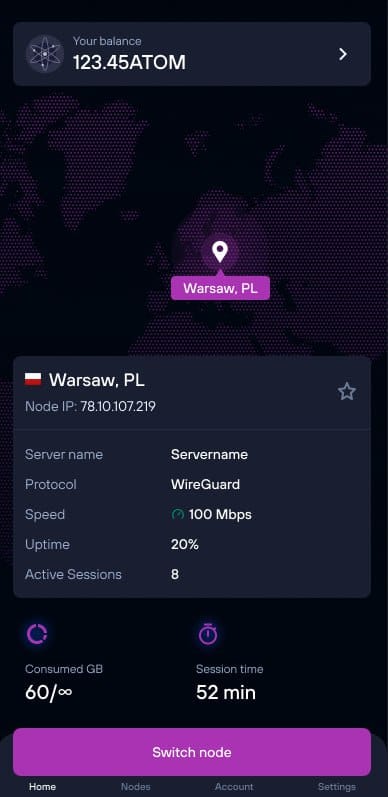
Airdrop dVPN (currently in open beta) is another application with great utility to the Cosmos community. It is the first dVPN to feature residential nodes, which will allow Cosmonauts to beat geo-restrictions that ordinary dVPN/VPN nodes may have trouble bypassing when claiming airdrops.
We in the Sentinel community appreciate our friends in the Cosmos Ecosystem, and we have great hopes that our project will revolutionize your online lives and become a staple of your Cosmos experience over the coming months and years.
Join Our Journey
At dVPN.news every member of the Sentinel community is a contributor. Whether you're writing articles, sharing tutorials, or participating in discussions, your involvement is what drives our collective growth, and best of all it's rewarded! Together, so if you to contribute to the growth of the Sentinel Network, you are in the right place!

Connect with Us
Stay in touch and be part of our growing community:
- Follow Sentinel on X (Twitter)
- Follow The Growth DAO on X (Twitter)
- Join The Growth DAO community Telegram Group


